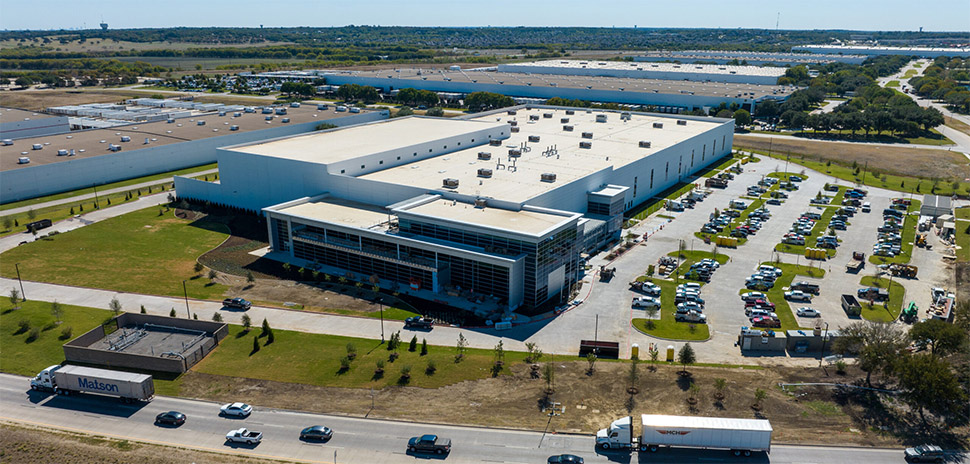Irving-based ShiftKey is betting on technology to address a looming care crisis. An aging population is creating surging demand for healthcare, but the supply of nurses and other caregivers is shrinking. Citing that outlook, the company said it is expanding its on-demand staffing platform into acute care facilities in six states.
ShiftKey’s transformative technology, data, and talent marketplace will now be available to acute care facilities in Texas, Kansas, Missouri, and Tennessee—providing solutions to workforce challenges and maximizing access to high quality care for patients.
“Our entry into the acute care space is an important step for ShiftKey as we continue to grow and evolve our platform and business,” CEO Mike Vitek said in a statement. “We have front row seats to the healthcare staffing crisis, and we are hopeful that by opening up ShiftKey to independent healthcare workers who serve acute care facilities, we can help chip away at the strain these facilities and healthcare providers face each and every day.”
“Ultimately, our focus is on the patient, and as we look at the strategic expansion of our business, we know that entering into new places, like hospitals, and providing a staffing relief valve that continues to put patients first,” Vitek added.
The company said beta testing of the technology has rolled out at acute care facilities in Alabama, Louisiana, Nebraska, New Mexico, South Carolina, and West Virginia.
Increasing demand vs. shrinking workforce
The Dallas-based double unicorn, valued at $2 billion in January, aims to leverage its workforce technology to connect hospitals facing shortages with licensed professionals seeking flexible work.
ShiftKey said that independent work is on the rise as people seek more flexibility and work-life balance.
By addressing persistent barriers for licensed professionals at both acute and post-acute facilities, ShiftKey aims to put the focus back on patient care, driving positive impact for facilities while creating new opportunities for flexibility within the healthcare workforce.
Study: 1 million nurses will need to be replaced soon
As the baby boomer generation ages and exits the workforce, ShiftKey said that 1 million nurses over the age of 50—up to one-third of the licensed healthcare workforce—are projected to exit the profession over the next several years.
Citing a study by The National Council of State Boards of Nursing, ShiftKey said 100,000 nurses have left the national workforce since the pandemic and an additional 800,000 nurses are predicted to leave the workforce by 2027.
With an aging population increasing demand against a shrinking healthcare workforce, ShiftKey said there won’t be enough people to care for those who need it most.
ShiftKey said its innovative model offers a critical solution to the workforce shortages across the healthcare industry and is an empowered workforce strategy that will help facilities retain and attract their workers.
“The workforce challenges that facilities face are increasing year after year,” ShiftKey Chief Revenue Officer Brandon Tappan said in a statement. “We know that nurses are leaving acute care facilities by the thousands, and that there needs to be a new and different way to provide staffing support to these facilities which serve our most vulnerable populations. By offering ShiftKey’s technology to acute care facilities, we are creating an independent healthcare staffing solution, which is bringing people back into the workforce on their own terms in a way that can potentially revive and preserve this critical industry.”
Offering ‘optionality and empowerment’
In July, the company announced several C-suite moves and a rebranding highlighting its goal of disrupting technology, workforce, and healthcare with a win-win solution for burned out healthcare workers and the facilities they staff.
Newly announced CEO Vitek told Dallas Innovates at the time, “If traditional models were working, we wouldn’t currently be facing such a critical gap in the healthcare workforce.”
“For more than a decade now, there’s been conversation around how we have an aging workforce, and people aren’t entering it as quickly as we need to make up for that gap,” he added. “At the same time, these professionals are burned out. Because of ShiftKey and the optionality to pursue work on their own terms in an independent capacity, we’re seeing more professionals come into the workforce—and more come back into the workforce—because of the optionality and empowerment we offer.”
With 10,000 healthcare facilities and hundreds of thousands of independent licensed professionals on the platform, ShiftKey said that it’s a market leader in strategic workforce solutions, driving a more sustainable, inclusive and profitable workforce economy for the future.
Quincy Preston and Sandra Engelland contributed to this report.
![]()
Get on the list.
Dallas Innovates, every day.
Sign up to keep your eye on what’s new and next in Dallas-Fort Worth, every day.







































































